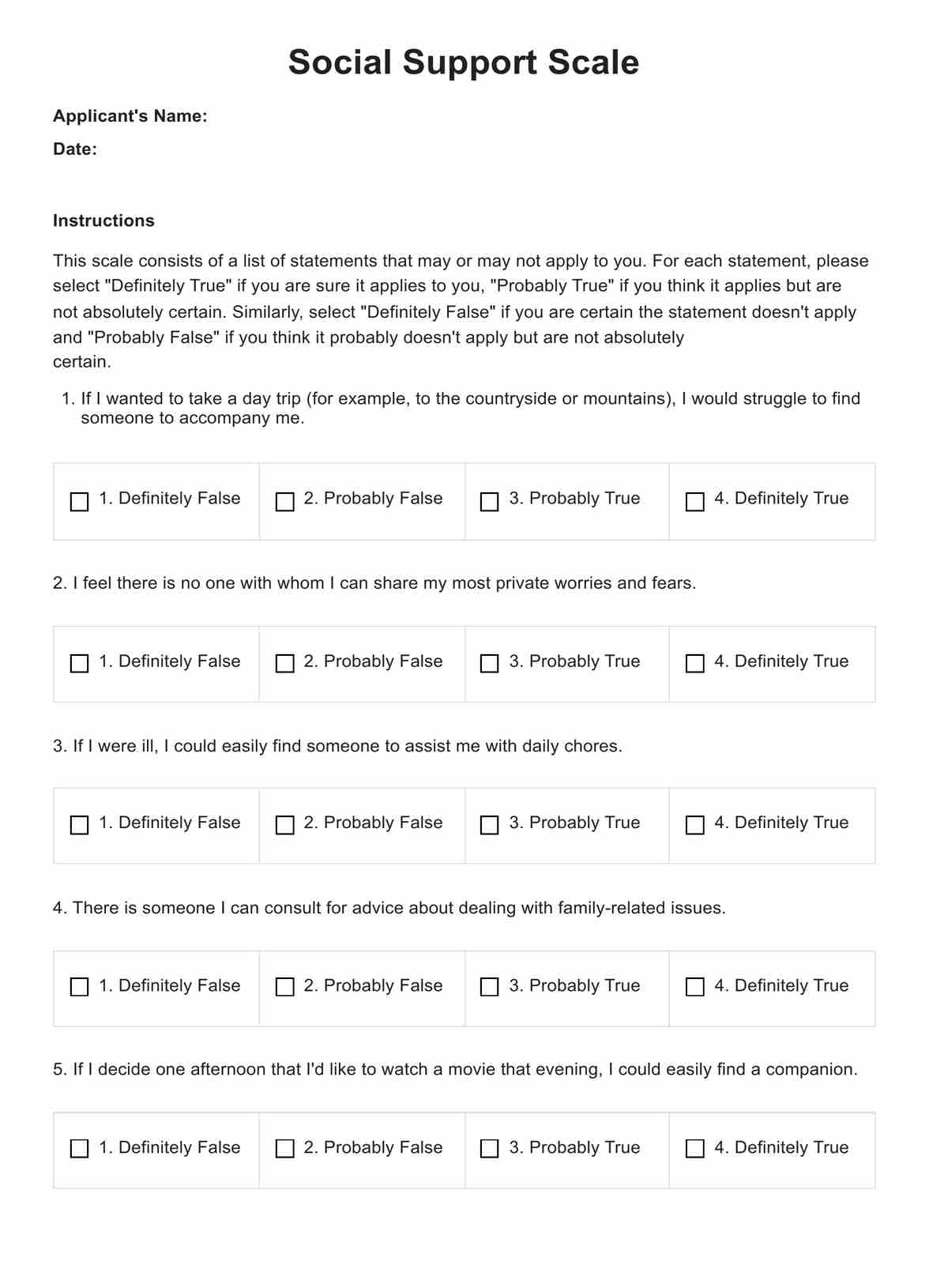The Social Support Scale is used by mental health professionals, social workers, researchers, and anyone interested in understanding an individual's perceived social support.

Social Support Scale
Discover how to leverage Social Support Scales effectively in healthcare & research settings. Also learn why Carepatron is your optimal choice for these scales.
Use Template
Social Support Scale Template
Commonly asked questions
The Social Support Scale measures the level of social support an individual perceives they have in their life. It can be used as a mental health assessment or a broader psychosocial evaluation.
The Social Support Scale is a self-reported measure where individuals respond to statements regarding their perceived social support. The responses are then scored to measure the person's perceived social support.
EHR and practice management software
Get started for free
*No credit card required
Free
$0/usd
Unlimited clients
Telehealth
1GB of storage
Client portal text
Automated billing and online payments











